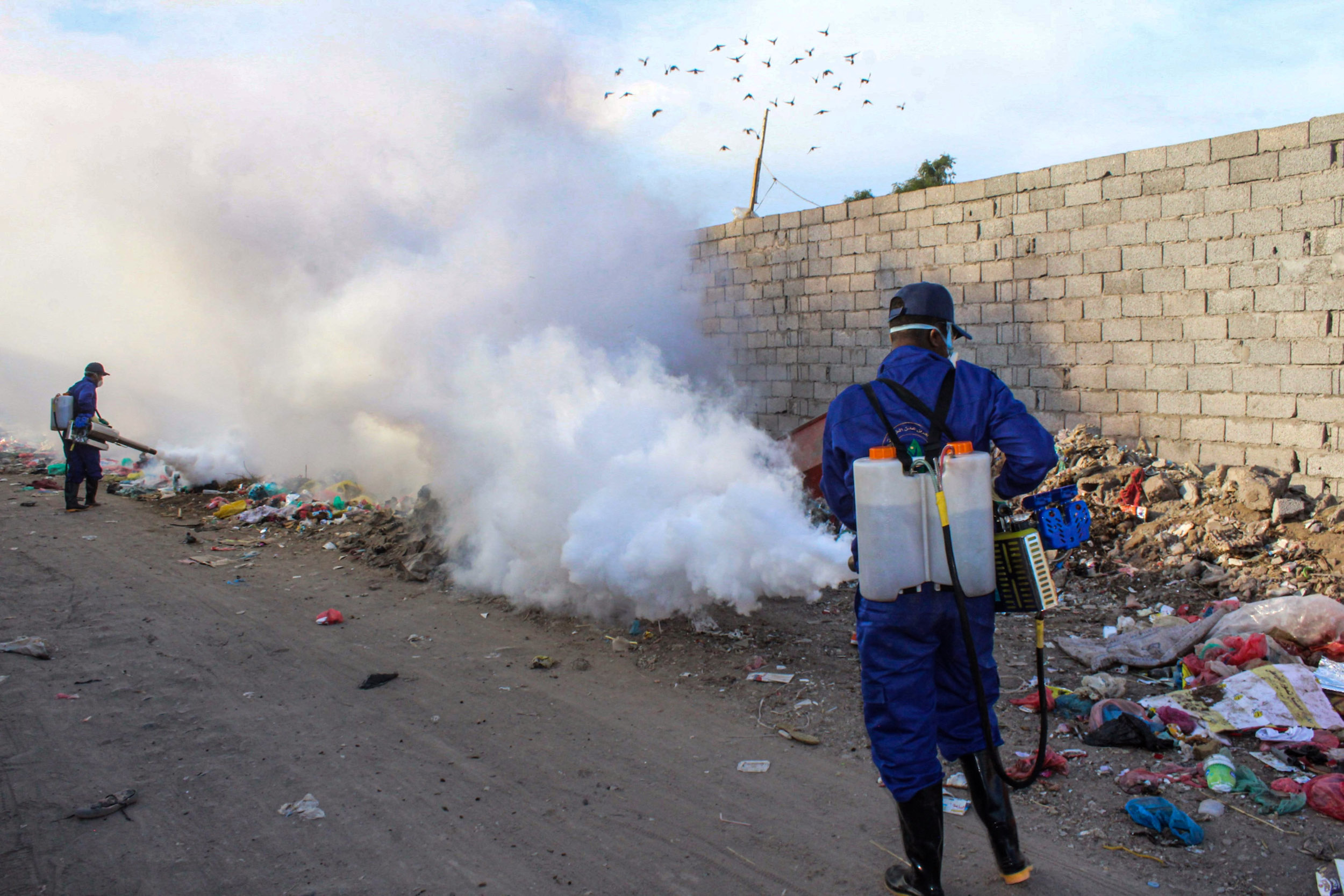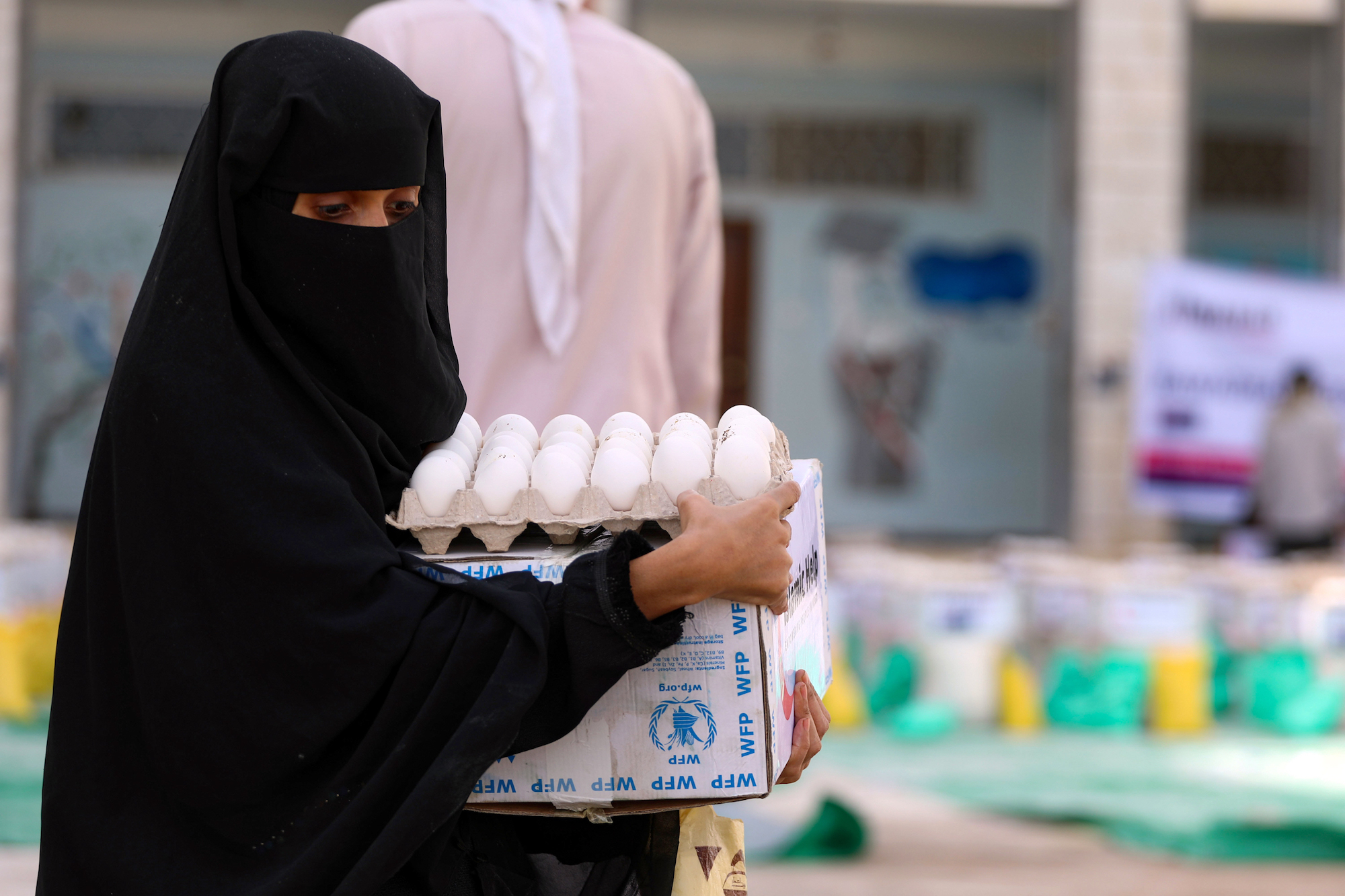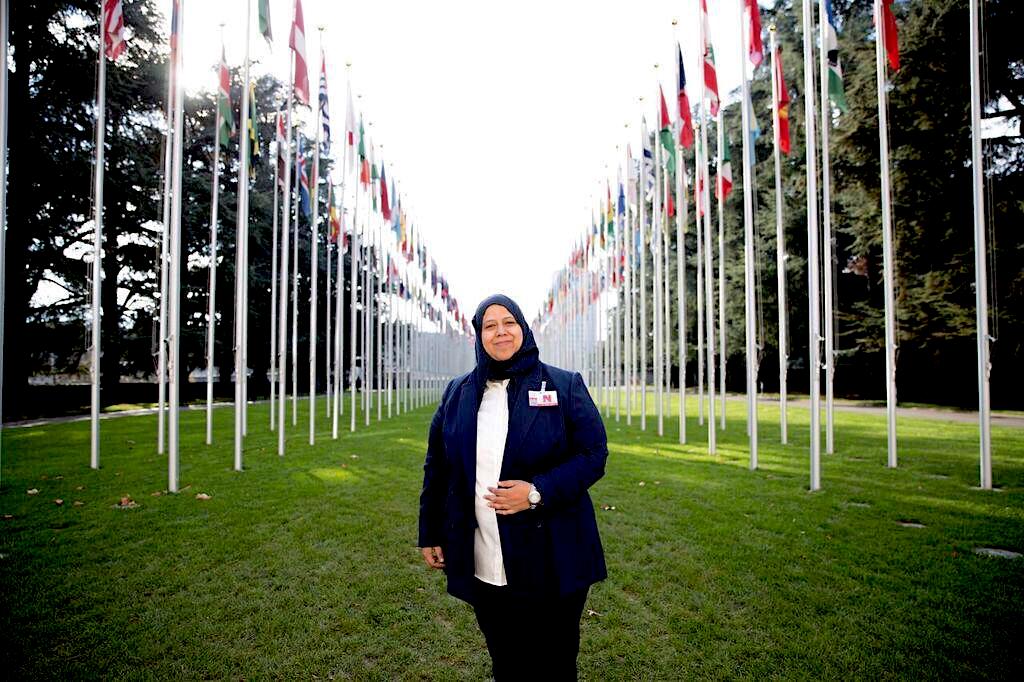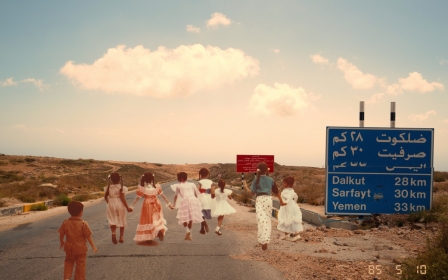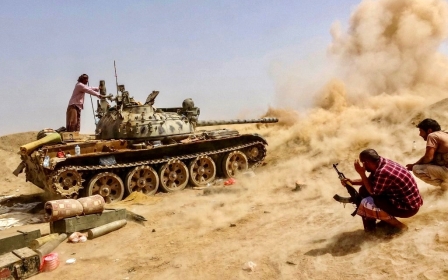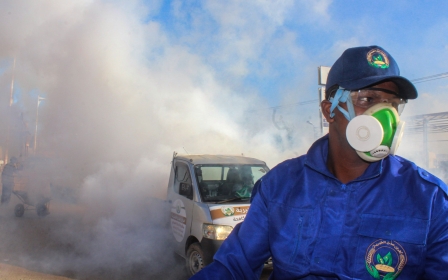Yemeni women rally to protect the most vulnerable as coronavirus spreads
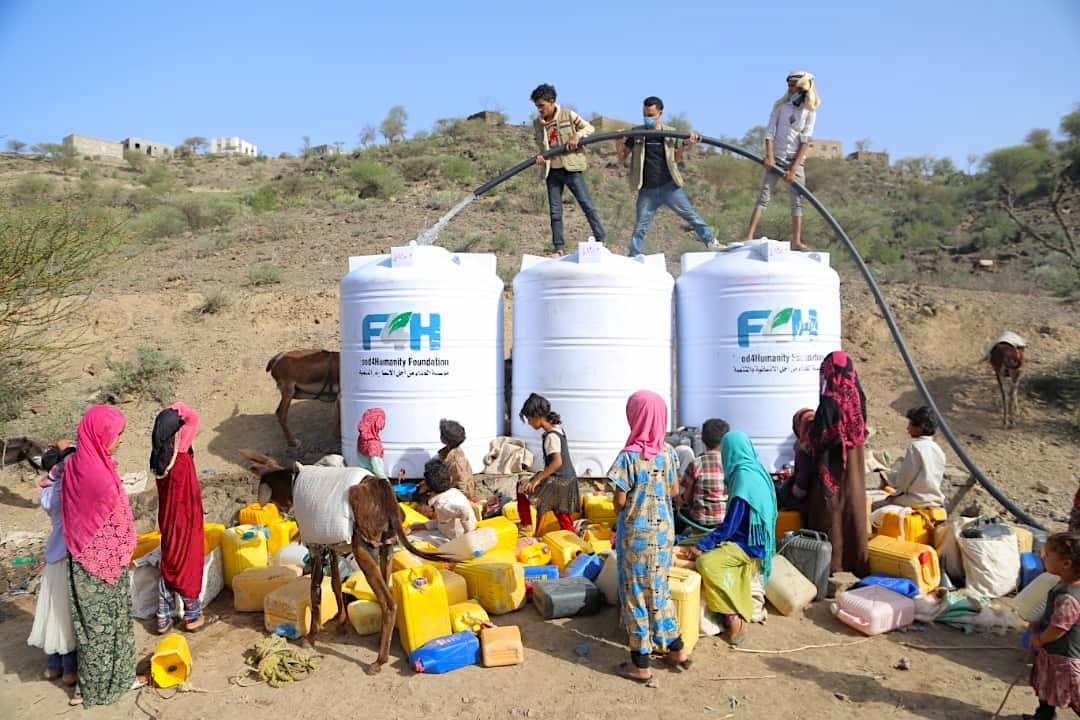
Throughout human history, wars and pandemics have repeatedly reshaped the world we live in.
In Yemen, a country already shredded by a five-year-long civil war and now struggling to contain the coronavirus outbreak, more and more women have joined the frontline. They hope to turn their country’s misery into strength, and to lay the foundation for a better future.
According to the World Health Organisation (WHO), Covid-19 is currently spreading undetected in Yemen, divided between the internationally recognised government in the south and the Iran-aligned Houthi group based in the north.
The government’s coronavirus committee reported two more Covid-19 cases on Monday, taking total confirmed infections since 10 April to 130, with 20 deaths in nine of Yemen’s 21 provinces.
The Houthis, who hold most large population centres, have only announced four cases with one death, all in the capital Sanaa.
New MEE newsletter: Jerusalem Dispatch
Sign up to get the latest insights and analysis on Israel-Palestine, alongside Turkey Unpacked and other MEE newsletters
The conflict between the Saudi-led coalition and the Houthis has already caused what the United Nations describes as the world’s largest humanitarian crisis, with about 80 percent of Yemen’s population reliant on aid and millions facing hunger.
With the two sides focusing more on fighting each other than combating the virus, Yemen's women have taken action.
The invisible enemy
No two days are the same for Zoha Hadid, a doctor juggling patients at Al Amal Hospital’s busy quarantine centre in the southern port city of Aden.
“Amal” in Arabic means hope, but to the many patients fighting the coronavirus while their loved ones wait without seeing them, hope is ebbing away.
'If a 12-hour-shift goes by without a patient dying, it would count as a good day'
- Dr Zoha Hadid, in Aden
The work is deeply frustrating. Hadid must work miracles with limited resources, as Yemen’s healthcare infrastructure has been decimated by years of war.
She struggles to allocate seven artificial ventilators to the 30 to 40 respiratory patients that come through hospital triage each day. Sometimes the numbers are higher.
"If a 12-hour-shift goes by without a patient dying, it would count as a good day", she says.
Some suspected cases arrive listless and are immediately taken to the intensive care unit. Others have minor symptoms and are admitted to the general ward.
Aden, once a thriving hub between east and west, and now the interim seat of Yemen’s UN-recognised government, is the country's epicentre of Covid-19.
As of 21 May, Yemen’s national coronavirus committee had documented 29 deaths and 180 confirmed cases in the south. However, the civil registration office at Yemen’s interior ministry had listed 623 deaths citing “unknown reasons” since the beginning of May.
The inconsistencies in the actual death toll are down to several factors: a lack of testing, a lack of transparency in the records and the increased prevalence of other diseases such as chikungunya, cholera and dengue caused by heavy flooding in April.
Most private and public hospitals in Aden have closed their doors to potential Covid-19 patients. Only Al Amal, partly managed by Medecins Sans Frontieres (MSF) and Al Jumhuriya, is still admitting them.
“It is my responsibility to take care of my patients despite the scarcity of gear,“ Hadid told MEE, stressing that Yemenis were desperate to find professionals they could trust.
“Some patients don’t even come to us, because they die in their homes,” the young doctor said.
An initiative called “I’m a doctor, I can”, was launched to tackle the problem of limited access to coronavirus treatments in Aden, providing a digital platform for remote consultancy and diagnosis based on patients’ medical history.
According to its founder, Walid al-Bakili, women make up about half of the 150 neurologists, cardiologists and physicians who have registered to provide online consultancy through the scheme.
Al-Bakili, who works as a paediatrician and family physician at the Apollo Hospitals in New Delhi, is originally from Aden. He said he was convinced that 80 percent of the deaths seen in the city were from Covid-19, and the fear for his family’s wellbeing led him to launch the initiative.
“Yemen’s Ministry of Health does not exist. There are no ambulances. Life carries on as normal as people don't believe there is a virus,” he said, condemning the government’s inability to enforce prevention protocols, which led to the deaths of several doctors.
Nationwide failure
The spread of coronavirus among Yemen’s vulnerable population is a hot potato that neither the Houthis nor the government of exiled President Abd Rabbu Mansour Hadi want to deal with, said Basma Barmatraf.
“Both governments are obscuring the real effect of coronavirus in Yemen to hide their failure in handling the crisis,” said Barmatraf, a gynaecologist at Al Hussein centre in Aden city.
'While innocent women and children are killed in Yemen, militia leaders get the VIP treatment and best protective gear'
- Muna Luqman, founder of Food4Humanity
Instead of taking the precaution to limit the exposure of the disease, she added, the two sides were focused on fighting each other.
The Saudi-led ceasefire that started on 9 April wore thin just days after it came into effect, as both sides carried out attacks. The conflict has also prevented health and aid workers from reaching rural areas, where they face coronavirus on one side, and constant bombardment on the other.
Sukaina Sharafuddin, a communications coordinator at Save the Children, understands the importance of social distancing in preventing the spread of coronavirus. However, she finds it difficult to stay away from those in need, knowing that many people rely on aid to stay alive.
Furthermore, if people are to remain in their home as a precautionary measure, they should feel safe, but they don’t.
“Yesterday a child was killed, and three others were injured in Saada [northern Yemen],” Sharafuddin told MEE in a recent interview.
VIPs of the pandemic
Aid workers say they face constant threats and obstructions while travelling in Houthi-controlled areas. A number of international organisations claim they are subject to Houthi policy in order to keep up activity and continue to help those in need.
”While innocent women and children are killed in Yemen, militia leaders get the VIP treatment and best protective gear,” Muna Luqman, founder of Food4Humanity, a Yemen-based charity providing emergency relief, told MEE.
On the other hand, doctors and nurses "lost their lives to Covid-19 because they didn’t have masks”, she said.
Even before the first case of Covid-19 was reported in Yemen, Luqman had called for a ceasefire to focus on fighting the virus. In the absence of government awareness campaigns, she has taken matters into her own hands and produced multimedia messages on coronavirus, including animations laced with sarcasm that have been viewed thousands of times.
Meanwhile, she and her team have been working round the clock to reach remote areas outside Sanaa. In the midst of the pandemic, Food4Humanity volunteers have built a new water station and supplied laboratories in Hodeidah and Taiz with protective gear and PCR testing equipment.
Displaced and struggling
In the south, multiple conflicts between armed groups have made an already dire situation worse for civilians, said one activist. The power struggle led to the UAE-backed Southern Transitional Council (STC) declaring self-rule in Aden and other southern regions in April.
With only half the country’s health facilities functioning, prevention of coronavirus is the only way forward, said Anjila al-Maamari, president of the Centre to Support Woman and Children (CSWC).
She has been actively campaigning about coronavirus and its preventive measures using online and broadcast media, but that’s not the only thing her group is working on.
“Our women have been present in mediation, relief, awareness, local and international advocacy, coordinating ceasefire campaigns, and the release of prisoners,“ the doctor told MEE.
Keeping up the spirit
Yemen’s civil war has left more than 100,000 dead and resulted in more than 3.5 million internally displaced people, refugees, and asylum seekers who depend on humanitarian aid to survive.
Last month’s deadly flooding has left the displaced even more vulnerable to the virus, as clean water needed for frequent hand washing is hard to come by, said Fatima al-Hagagy, who works as a midwife for the International Organisation of Migration (IOM) clinic in Marib’s largest Al Jufainah displacement camp, which hosts nearly 5,000 families.
Her goal right now is to focus on “protecting the human spirit” at the camp, Hagagy told MEE, as people fear for the health of their loved ones while grappling with their future.
While some women on Yemen’s frontline see themselves as healers and protectors, one doctor sees herself as a potential martyr.
Amani al-Tayeb, a gynaecologist at UN-run Azzan Health Centre in Yemen’s northwestern Hajjah province, described her job as suicidal. Without adequate protective gear, she said, it feels as if a doctor wearing just a mask ultimately faces the same fate as the Covid-19 patient they are treating - and that could mean death.
But to al-Tayeb, it's a cause worth dying for.
Middle East Eye delivers independent and unrivalled coverage and analysis of the Middle East, North Africa and beyond. To learn more about republishing this content and the associated fees, please fill out this form. More about MEE can be found here.


